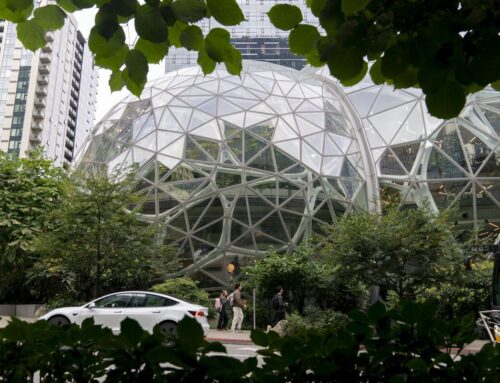Newsom Signs Bill Decreasing Cannabis Tax, Which Could Boost Struggling Industry
September 22, 2025
Here are the morning’s top stories on Monday, September 22, 2025…
- Governor Gavin Newsom signed a new law Monday, lowering state cannabis taxes from 19% to 15%. Pot companies say it will bring much needed relief to an overtaxed, overregulated industry. But youth groups who are funded by this tax say kids are being betrayed.
- Governor Newsom signed a series of bills into law on Saturday aimed at reigning in aggressive immigration enforcement in the state.
The manufacturing floor at Santa Rosa’s CannaCraft is a scene out of Willy Wonka’s weed factory. Gloved, bonneted workers sort pills in the gel cap room, shiny silver cans twirl down a conveyor belt in the beverage canning room. A merry-go-round-shaped industrial machine grunts and gasps in the infusion room as it sorts watermelon pot gummies into three-ounce portions, then sends them up a roller coaster ramp to be dumped and sealed into electric green and pink packages.
The investment in automation equipment originally designed for packaging M&Ms or potato chips has helped the company stay afloat in California’s legal cannabis market, where the cost of labor, regulation compliance, and taxes levied at almost every stop in the supply chain adds a threefold price differential to legal pot products compared to illegal ones.
Arguing their industry is overtaxed and overregulated, nearly a hundred legal cannabis companies and their allies convinced the California legislature to give them a break, lowering the state excise tax from 19% to 15%. Gov. Gavin Newsom approved the cut, which will take effect Oct. 1 of this year. But on the other side of the aisle, more than a hundred youth and environmental groups funded by cannabis tax revenues said kids are being betrayed. “It’s taking directly from our youth,” said Leticia Aguilar, founder of Native Sisters Circle, a substance use prevention nonprofit for Indigenous girls that gets 80% of its funding from the pot tax.
California voters struck a deal when they voted to legalize recreational cannabis in 2016. Proposition 64 promised to create a marijuana tax fund, with 60% of revenues benefitting youth groups. But over the years, that financial bargain has come into conflict with another promise in that proposition: one that allows cities and counties across the state to apply whatever local cannabis taxes they wish on top of the state taxes.
For a company like CannaCraft, this means they pay the cost of Sonoma County’s local cannabis cultivation tax — 36 cents per square foot of outdoor crop, and $3 per foot indoors — when they buy cannabis from local farmers. Then they pay a 1% manufacturing tax to the city of Santa Rosa, a 2% distribution tax to San Diego County, where most of their dispensaries are, and another 10% retail tax to the city of San Diego when they sell them. All of these taxes are compounded, meaning they get baked into the price at each stage before the 19% state excise tax is added on top.
Gov. Gavin Newsom on Saturday signed a set of bills meant to check the Trump administration’s aggressive immigration crackdown in California, including a first-in-the nation measure to prohibit officers from wearing masks and others that limit their access to schools and hospitals.
The new laws echo the “resistance” measures California adopted during the first administration, when it passed a so-called sanctuary law to limit local law enforcement from cooperating with immigration agents, among other policies. “Immigrants have rights and we have the right to stand up and push back,” Newsom said at an event in Los Angeles where he signed the legislation.
The package of bills Newsom signed included:
- Assembly Bill 49 prohibits schools from allowing immigration enforcement officers on campus without a warrant.
- Senate Bill 627 widely prohibits federal and local law enforcement officers from wearing face masks while conducting their duties.
- Senate Bill 805 requires that law enforcement officers identify themselves while conducting their duties, with some exceptions.
- Senate Bill 81 prohibits immigration enforcement from entering restricted areas of a health facility without a judicial warrant or court order.
- Senate Bill 98 requires schools and higher education institutions to send community notifications when immigration enforcement is on campus, and prohibits immigration enforcement from entering certain areas without a judicial warrant or court order.
Search
RECENT PRESS RELEASES
Related Post



